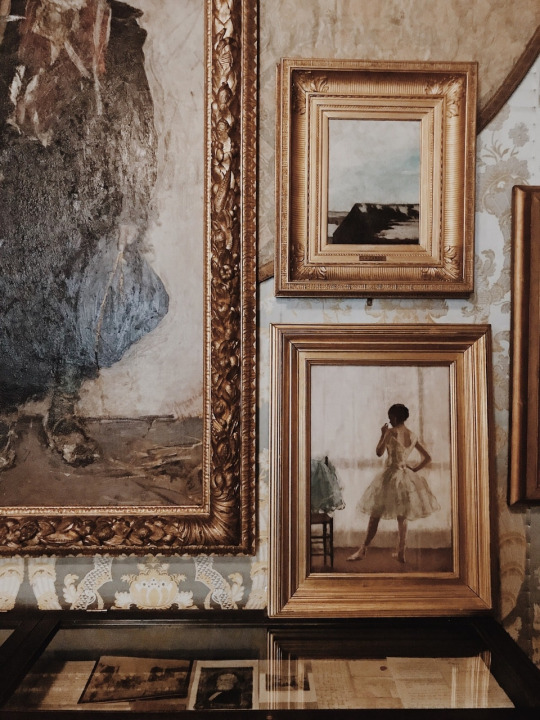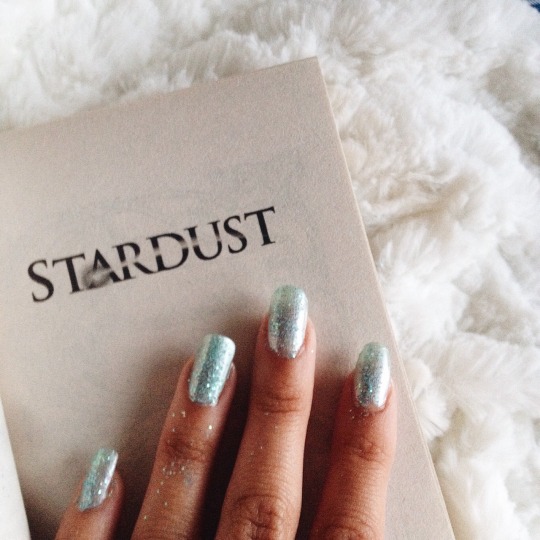Photo









an “english lit and history university student” moodboard for anon
229 notes
·
View notes
Photo

Murder on the Orient Express - Agatha Christie
Synopsis: Just after midnight, a snowdrift stops the Orient Express in its tracks. The luxurious train is surprisingly full for the time of the year, but by the morning it is one passenger fewer. An American tycoon lies dead in his compartment, stabbed a dozen times, his door locked from the inside. Isolated and with a killer in their midst, detective Hercule Poirot must identify the murderer—in case he or she decides to strike again.
My thoughts: This is another ingenious murder-mystery by Agatha Christie. And of course Poirot shines, with his “little grey cells” working their magic.
When I started with this read however, I felt that I had some difficulty in connecting with it; something I have not experienced with my previous reads of the Poirot series. I was a little disappointed as to why it is so since this is said to be one of the best works of her. I think it all had to do with the structure of the story and the way it was presented which is quite different to the previous reads of the series. While perhaps it gives more order to the flow of the story, it also found me mechanically reading the first third of the book with no real interest. From there onward however, the story picked up its pace keeping me well engaged and building my interest in the story till the very end.
That ending! It is quite different to what I have come across a Poirot story so far, so I feel I should say a few words about that ending. First, I never expected that outcome. It really took my by surprise. Second, I was more surprised by Poirot’s actions. He proved not only to be a brilliant detective but also to be a humane soul who believes that “justice” does not always find in strict rules and procedure. Well done Poirot!
Overall it was a good read, and my rating will vouch for the rest.
Date finished: 2 April 2020 Pages: 265 Rating/5: ★ ★ ★ ★
0 notes
Photo

The Lunar Chronicles is definitely one of my favorite series that I’ve read this year *insert heart eyes here*
879 notes
·
View notes
Photo

Barnes and Noble Leather Bound Editions are just 😍😍😍
1K notes
·
View notes
Photo

Long Walk to Freedom - Philip K. Dick
Synopsis: Nelson Mandela is one of the great moral and political leaders of our time: an international hero whose lifelong dedication to the fight against racial oppression in South Africa won him the Nobel Peace Prize and the presidency of his country. Since his triumphant release in 1990 from more than a quarter-century of imprisonment, Mandela has been at the center of the most compelling and inspiring political drama in the world. As president of the African National Congress and head of South Africa's antiapartheid movement, he was instrumental in moving the nation toward multiracial government and majority rule. He is revered everywhere as a vital force in the fight for human rights and racial equality. LONG WALK TO FREEDOM is his moving and exhilarating autobiography, destined to take its place among the finest memoirs of history's greatest figures. Here for the first time, Nelson Rolihlahla Mandela tells the extraordinary story of his life--an epic of struggle, setback, renewed hope, and ultimate triumph.
My thoughts: Well, so...
I am reading this for a book group. I believe I am on course to be the only person to finish the entire book. It is long. The writing style is dry.
Mandela is clearly not intending to write to enlighten an audience who knows next to nothing, which means he is not writing to me. he frequently has to explain what the rumor is that he is debunking.
And... all throughout... I am plagued by the thought: Ok. So I am reading the AUTOBIOGRAPHY of a LAWYER and POLITICIAN who has NEVER in his life stood for “honesty at all costs.” Just... think about that.
Don’t get me wrong. Mandela was a great man. One of the greatest political minds to come out of this century. He led brilliantly. Charismatically. He was visionary, he thought long-term, and he was not too idealistic to get his hands dirty -- which might have been exactly what his country needed. But you’re not going to see his rise to power in this book. You’re not going to hear him confess to anything, or show any great personal weakness. And you’re not going to know if he’s “making a clean breast of it” or if he’s out to defend himself and present the “image” that he wants to be remembered as.
Personally, I feel like it’s the latter. He talks a lot about the image. He talks a lot about his (black) political rivals. He talks a lot about fervently defending ideas and strategies that he personally believes to be crap because his party was in favor of them. I read this and have absolutely no idea if he is telling me the truth or not.
Another thing is that I kept thinking: this would make a great movie. A better storyteller could really work with the material that’s in here.
Date finished: 16 February 2020 Pages: 751 Rating/5: ★ ★
0 notes
Photo

In November you can find me by a steamed up window, reading and drinking hot chocolate 📔☕🍰
4K notes
·
View notes
Text


a little bit of sunshine and a little bit of rain this afternoon 🌧 also i’m loving dorian gray so much oscar wilde is my actual spirit animal
1K notes
·
View notes
Photo

Do Androids Dream of Electric Sheep - Philip K. Dick
Synopsis: It was January 2021, and Rick Deckard had a license to kill. Somewhere among the hordes of humans out there, lurked several rogue androids. Deckard's assignment--find them and then..."retire" them. Trouble was, the androids all looked exactly like humans, and they didn't want to be found!
My thoughts: Over the last few weeks I’ve read The Luzhin Defense, followed by Bluebeard and then Do Androids Dream of Electric Sheep?
Originally I was going to write some stuff here about the central characters and compare them with the original Outsider. I was going to say things like this:
Maybe it is a contradiction in terms, to put 3 books about outsiders in the same review, but I can't stop myself.
We have here a chess player, a doctor who might or might not have murdered a wife and a chickenhead. They all share a trait lacking in the original Outsider: they are all able to induce a sympathetic response from the reader. I don’t believe we have any capacity to understand Camus’s Outsider and without that, how can we have sympathy? It is easy to empathise with others, however apart they may be from our own lives. It is impossible for Camus to put us in the shoes of his Outsider. It IS possible to become the crazy chess player, the murderous doctor, the mentally deficient chickenhead. Indeed it is Dick’s great strength that his characters slip into you; no matter that they are hypothetical consequences of a hypothetical world.
I can’t help wondering how I would have felt about Nabokov if I’d read him last instead of first. I thought he was getting away with being clever and ornate at the time. But to read the sparse prose of Frisch next made me question this. And sharing with Dick the suffering of his characters meant I started wondering if Nabokov really had a clue what he was writing about. He says things that hit the mark for sure and his general thesis that chess saves the hero’s life until his dogooder wife-to-be starts interfering is completely faithful to the real world. I would scarcely be the only chess player to associate with Luzhin’s discovery of the game, a discovery that means life is suddenly tolerable. But something makes me distrust Nabokov’s portrayal of the Outsider, and I’m tired of trying to figure out what it is.
That’s the sort of thing I was going to say.
But I’d rather read. Consider me a Goodreads outsider.
Date finished: 24th September, 2019 Pages: 193 Rating/5: ★ ★ ★ ★ ★
0 notes
Text


‘It is better to know one book intimately than a hundred superficially.’
by Donna Tartt - The Secret History
12K notes
·
View notes
Photo

I finished Always and Forever Lara Jean the other day. It ended where I always thought it would be. It’s domestic and filled with pop culture references. I will cherish the Song sisters forever 💖
233 notes
·
View notes
Photo

The Art of War - Sun Tzu
Synopsis: No library is complete without history’s oldest treatise on warfare. Dated to about fifth century BC, The Art of War is considered the oldest treatise on war in the world. Attributed to Sun Tzu of the Zhou dynasty, the book is composed of thirteen chapters, each addressing a particular aspect of warfare, such as planning offenses, military combat, and the employment of spies. Influential in eastern civilization for millennia and in western culture since its first translation in the 18th century, the teachings of this book have been applied to scenarios as varied as office politics, the Vietnam War, and American football. Now this living military heirloom is available as part of the Word Cloud Classics series in a chic affordable edition for readers everywhere.
My thoughts: Quick Demo: On Ruining a Classic Text
Kaufman (author more than translator, I feel) boasts: In this work you will learn how people are to be treated and dealt with. The work was written for men in command and leaders of states. It is for the ambitious and strong spirited; do not seek morality lessons here.
Sun Tzu has been translated and interpreted countless times by people with little knowledge of true combat reality on either the physical or mental level.
Most of the available translations and interpretations maintain a poetic approach that really doesn’t pertain to the times we are living in. There is a tendency to maintain a “mystique” regarding ancient knowledge. This is quaint, relative to today’s aggressive personality. We are living in a global network and must think in decisive terms if we are to succeed.
He also chooses to leave out the valuable commentaries, which are supposed to be as much a part of the work as the original.
He says: In reality, who cares what Ch’en Fu thinks about Sun Tzu’s hidden meaning about the jade stalk in the midst of the enemy’s goldfish pond? We are grown-up and intelligent enough to develop our own understanding without the need for quaint allegories. There is nothing sacred here. I find that approach unnecessary, limiting, and a waste of time to the educated reader.
And here is a fun fact:
As an acknowledged and world-recognized martial arts master, a Hanshi (which is the highest rank attainable), I am thoroughly aware of my responsibility for the interpretation of this doctrine, and I have made it incumbent upon myself to explain Sun Tzu’s tenets as I perceive them in a definitive manner.
- Must have recently taken a crash course on how to prepare a CV!
Well, the book is a bore and a complete failure. It does no justice to Sun Tzu’s masterpiece and is worse than the regular self-help fare because it has only pretentiousness (of being tough, goal-oriented, warlord-like, if you please) and no real intention of even trying to ‘help’ any non-delusional executive.
There is a reason why The Art of War is always presented poetically - it is so that the metaphors can be interpreted by the reader and applied as they want, so that they can understand the spirit of planned and prepared combat/conduct and apply that in life. That is why Art of War is an enduring and much loved classic.
The author obviously has no clue about all this. He thinks it is a good idea to just present the text as-is, without ornamentation, without poetry, without any hints at broader applications beyond the battleground - because the global corporation IS a battleground! Hello!
Not realising that once you strip away the poetry, you also strip the power of metaphor and what you have left is a dated text that talks of war and claims to be for managers. It makes no sense to be told in plain prose to poison your enemy and insult his wife. Idiotic, without even being entertaining. Takes all the fun out of reading a bad book.
Date finished: 27th August, 2019 Pages: 232 Rating/5: ★
0 notes
Text


8/24/19 - Saturday mornings are my favorite feeling in the whole world ✨
3K notes
·
View notes




